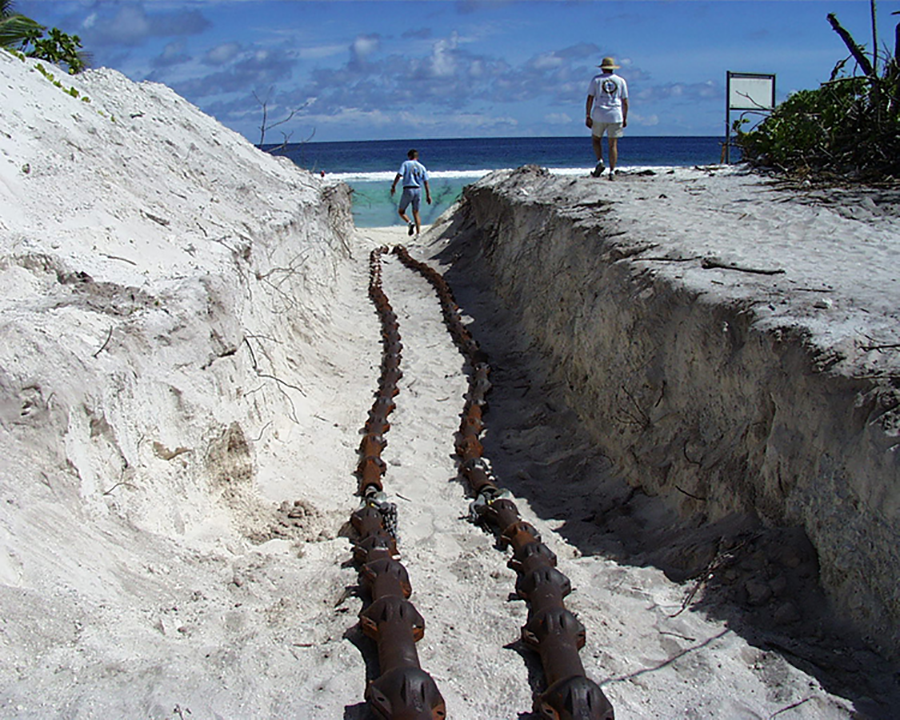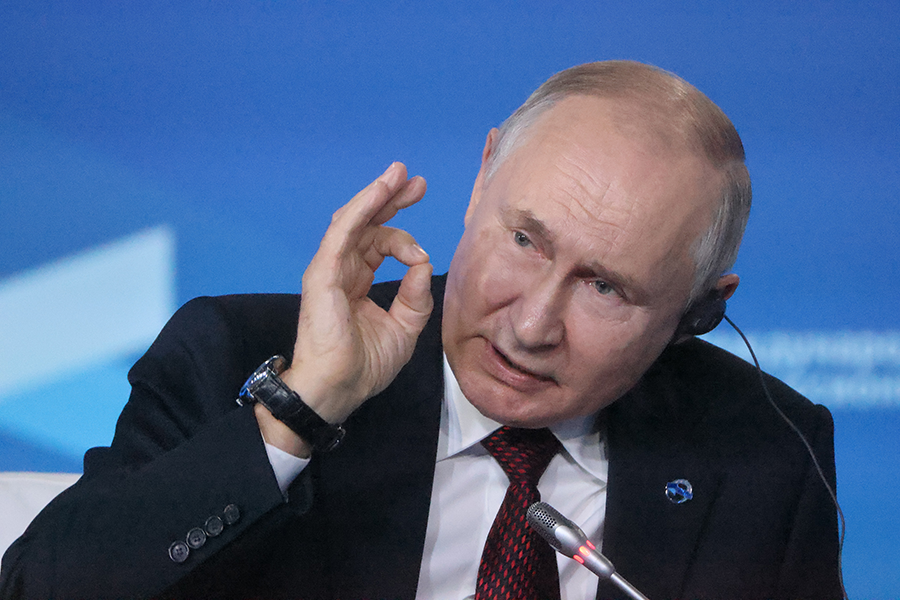"No one can solve this problem alone, but together we can change things for the better."
Russia ‘Deratifies’ Nuclear Test Ban Treaty
November 2023
By Shizuka Kuramitsu
President Vladimir Putin signed a law revoking Russia’s ratification of the Comprehensive Test Ban Treaty (CTBT), which has helped keep a lid on nuclear testing for 27 years.

The law, signed on Nov. 2, reflects worsening tensions with the United States over Russia’s war in Ukraine and a further crumbling of the international arms control architecture. Putin’s move was expected after the Russian Duma’s lower house passed the bill in a 415-0 vote on Oct. 17; the upper house, in a 156-0 vote on Oct. 25.
Russia remains one of the 187 signatories to the treaty and, according to Russian officials, will continue to cooperate with the Preparatory Commission of the Comprehensive Nuclear-Test-Ban Treaty Organization (CTBTO) and its International Monitoring System, which was established to verify compliance with the treaty. But the Russian decision to deratify its membership is clearly a setback to long-running efforts to achieve entry into force of the treaty, which still requires ratification by China, the United States, and six other treaty-specified states for that to happen.
Russia’s deratification move has raised inevitable questions about whether it actually will resume nuclear testing. Asked about this on Oct. 5 at the Valdai Discussion Club in Sochi, Putin replied, “I’m not ready to say now whether we really need or don’t need to conduct tests.”
Putin reiterated a longtime grievance with the United States, which signed the treaty in 1996 but did not ratify it, while Russia ratified the CTBT in 2000. "As a matter of principle, we can offer a tit-for-tat response in our relations with the United States," he stated.
In response, a State Department spokesperson told The Wall Street Journal the following day that the Russian move “needlessly endangers the global norm against nuclear explosive testing" and that Washington will continue to adhere to its nuclear test moratorium, which it has observed since 1992.
Vyacheslav Volodin, the Duma speaker, told the lower chamber on Oct. 17 that, “[o]ur vote will be a response to the United States for its boorish attribute towards its responsibilities to maintain global security.”
Ahead of the Duma vote, senior Russian Foreign Ministry officials asserted that Russia would continue to observe a nuclear test moratorium. “Withdrawing ratification by no means undermines our constructive approach to the CTBT and does not mean that our country intends to resume nuclear tests,” Vladimir Yermakov, head of the Foreign Ministry’s nonproliferation and arms control department, was quoted by Tass as saying on Oct. 16.
He reaffirmed that Russia’s position on the resumption of nuclear explosive testing was set out in February when Putin said that Russia would only conduct a test if the United States did so first.
 But on Oct. 10, Russian Deputy Foreign Minister Sergei Ryabkov accused the United States of carrying out preparations at its nuclear test site in Nevada, according to Reuters.
But on Oct. 10, Russian Deputy Foreign Minister Sergei Ryabkov accused the United States of carrying out preparations at its nuclear test site in Nevada, according to Reuters.
A U.S. State Department spokesperson rejected the allegation, calling it “a disturbing effort by Moscow to heighten nuclear risks and raise tensions in the context of its illegal war in Ukraine.” They reiterated that Washington has no plans to abandon a 1992 moratorium on nuclear test explosions.
Satellite imagery shows that China, Russia, and the United States are all making improvements to military and experimental facilities at their former nuclear test sites. (See ACT, October 2023.) Independent analysts say the deratification is not necessarily an indication that Russia plans to resume nuclear explosive testing for development of its nuclear weapons programs.
Although the Duma vote is a concern, “neither the announcement nor actual withdrawal from the CTBT would change the fundamental calculus of nuclear threat and risk because they would not modify Russia’s incentives, nuclear doctrine or force posture,” according to a commentary published by the Stockholm International Peace Research Institute on Oct. 17. But others were not so sanguine. On Oct. 16, the Canadian delegation to a UN meeting in New York said in a statement that Russia’s deratification “undermines the treaty’s objective” and this action “stands in contrast with the recent Article XIV conference,” where states reaffirmed their commitment to the treaty.
In a statement issued on Oct. 19, CTBTO Executive Secretary Robert Floyd called the Duma’s decision “very disappointing and deeply regrettable” and said that “this decision goes against renewed global determination to see the CTBT enter into force.”
Floyd added that Russia “has stated that revoking its ratification does not mean it is withdrawing from the CTBT and that it remains committed to the treaty, including the operation of all CTBTO monitoring stations on its territory and the sharing of that data with all states.” Russia hosts 30 of the 300-plus seismic, hydroacoustic, infrasound, and radionuclide monitoring stations that compose the treaty’s global verification network.
In the context of the CTBT, Russia’s move to withdraw its ratification has no precedent.
